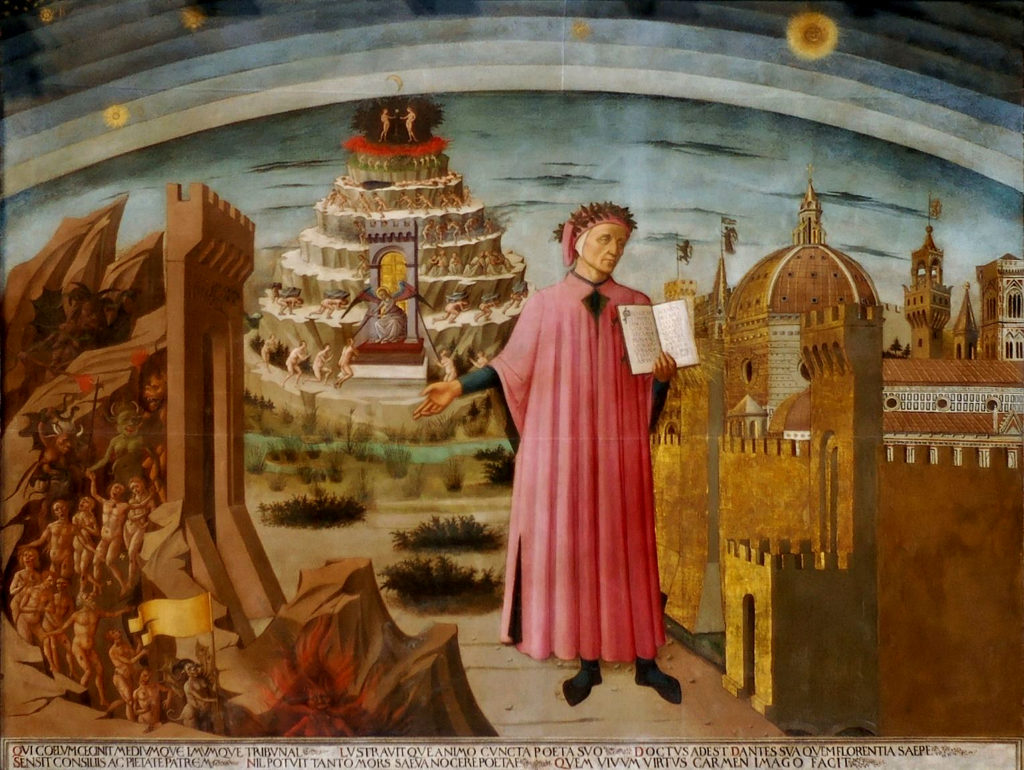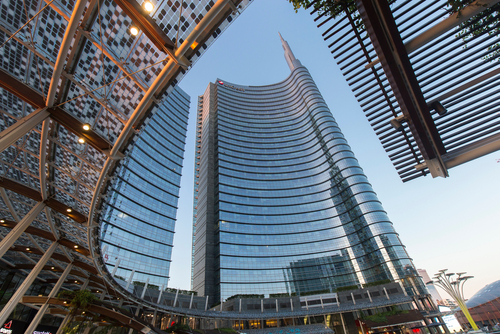
Have you ever considered learning Italian? Delving into this historic language is not just about understanding words and phrases; it’s an immersive dive into a rich tapestry of culture and traditions.
The third week of October is the “Week of Italian language in the World”. An initiative that celebrates the Italian language and culture. What better opportunity to start learning Italian? Keep reading to download a free copy of the ebook L’italiano e la sostenibilità published by Accademia della Crusca to celebrate this year’s theme.
The Italian language, known for its sing song melodic intonation, dates back to the 12th century. It evolved from Latin and was first used in the literary texts in medieval times. From there, it took another eight centuries for it to become the Italian language as we know it today.
Timeline of the History of the Italian Language

Origins – The Foundations (circa 1000 AD):
The history of the Italian begins with the Latin speakers in the Italian peninsula during the Roman Empire. Over centuries, Classical Latin morphed into Vulgar Latin, the vernacular used by soldiers, settlers, and merchants throughout the Roman Empire, which differed significantly from the classical version. It’s this Vulgar Latin that would plant the seeds for Italian and several other Romance languages.
The Vernacular Literature – Dante’s Influence (circa late 1200s):
The 13th century marked a significant turn when Italian began to be used in literature. The ‘father of the Italian language,’ Dante Alighieri, chose to write his masterpiece, “The Divine Comedy,” in the Tuscan dialect in the late 1200s to early 1300s, instead of traditional Latin. This choice was revolutionary, setting a standard for what would eventually evolve into modern Italian.
Standardization – The Quest for a Unified Language (16th Century):
In the 16th century, the Italian language was still a collection of dialects with high mutual unintelligibility. Pietro Bembo, advocating for the Florentine dialect, publishes the first Italian grammar book, pushing for a standardized Italian language.
Unification of Italy – The Birth of Modern Italian (1861):
The Italian we know today was largely a result of Italy’s unification in 1861. The new state adopted the Tuscan dialect, which was the most prestigious of all dialects. However, it wasn’t until the widespread education and TV broadcasts of the 20th century that a unified version of Italian truly took hold among the general populace.
Why study Italian now?

Understanding this language opens doors to countless opportunities, famously in the realms of art, music, fashion, and cuisine but did you know that Italy is one of the largest economies, 8th largest exporter in the world and the second-largest manufacturing industry in Europe (7th-largest in the world). Italian companies and overseas companies operating in Italy are hiring more and more international managers to run businesses, international marketing profiles to manage multilingual contents and researchers and designers for their product teams. Companies from abroad are investing in Italian companies and products. If you wanted to learn Italian to work in Italy, now is a great time for it.
Participating in an Italian culture course allows enthusiasts to connect deeply with Italy’s heritage, offering more than just linguistic skills but also insights into the country’s rich artistic and historical contributions.
For many, Milan serves as the perfect backdrop for this educational journey. Known as Italy’s city of the future, Milan also holds a significant past, making it an ideal place to explore while you learn Italian and find a job or build a business. This vibrant city is a hub for learners and professionals alike, known globally for its contributions to design and fashion.
To learn and study Italian is to embrace an invaluable cultural experience. It’s not just about words, but also about understanding a way of life that has continued to influence global culture for centuries.
During the XXIII Week of the Italian Language in the World, from 16 to 22 October 2023, you can download your free copy here of the ebook L’italiano e la sostenibilità, published by L’Accademia della Crusca and goWare and edited by Marco Biffi, Maria Vittoria Dell’Anna and Riccardo Gualdo.
Immerse yourself in an Italian language and culture course today and begin your viaggio. Your adventure awaits!


